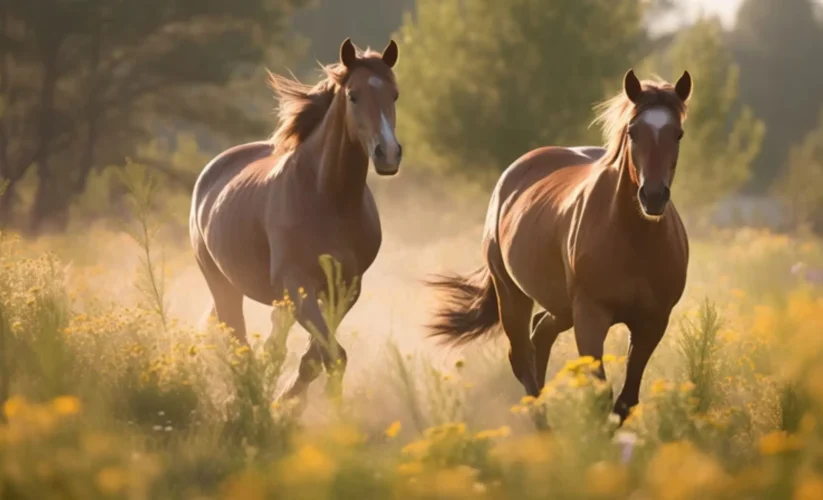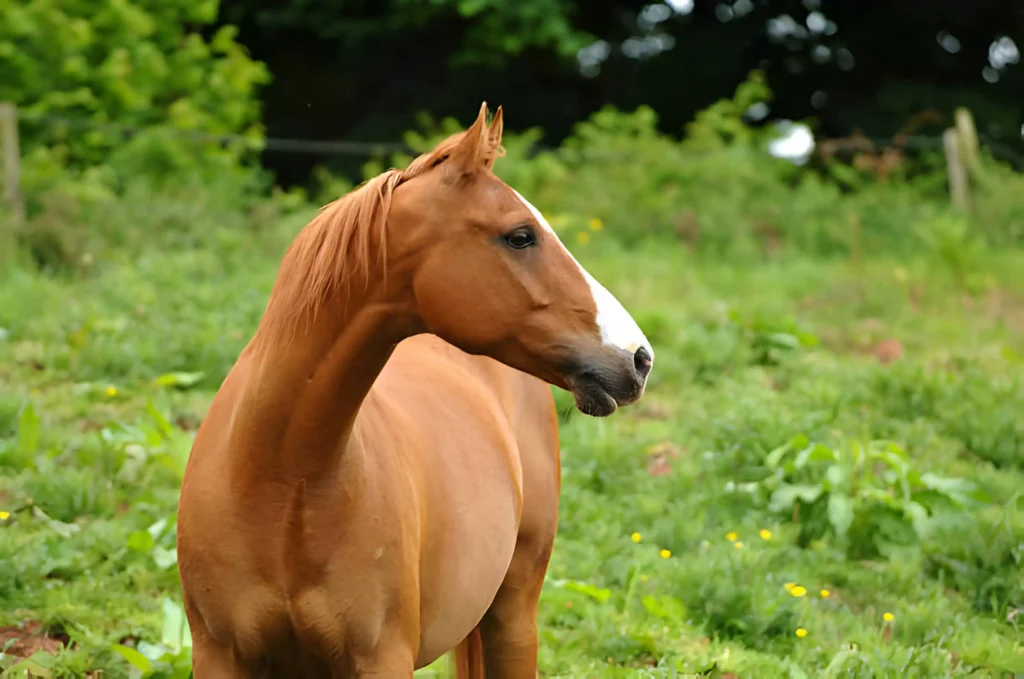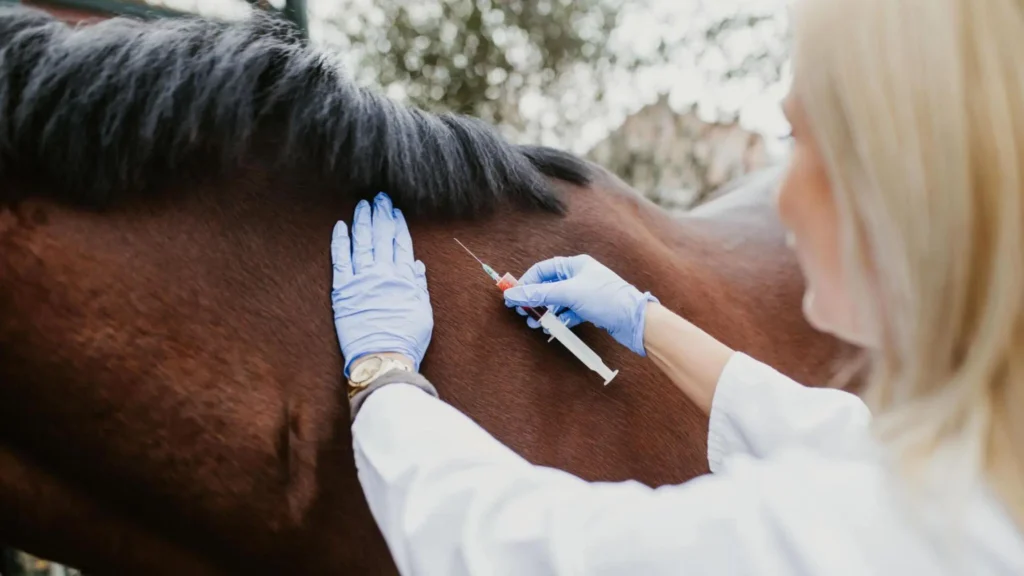
How Long Does a Horse Live
How Long Does a Horse Live? To understand this we should know that horses live a long time compared to other pets. They are at their healthiest when they’re around 10 to 15 years old. Domestic horses can live from 25 to 33 years, and some even live longer than that.
Factors Affecting Horse’s Lifespan
Now we know that How Long Does a Horse Live. Now it’s time for some of the factors affecting the lifespan of horses:
Genetics: Just like people, certain types of horses are more likely to live longer lives. For instance, Arabian horses are famous for living a long time, often reaching their 30s or even 40s.
Nutrition:Eating the right kind of food is super important for a horse’s health and happiness. To stay strong and live a long time, horses need food that has a lot of fiber, important vitamins and minerals, and clean water. This helps them stay the right weight, avoid getting sick, and have plenty of energy for a fun and long life.
Exercise: Making sure horses stay healthy and strong requires regular exercise. It helps them keep a good weight, boosts their heart health, and makes their muscles and bones stronger. But it’s crucial to avoid overdoing it, as that can cause injuries and other health issues.
Veterinary care: It’s really important to take your horse to the vet regularly and make sure they get preventive care. This helps keep them healthy and catches any problems early. Doing this can stop big sicknesses and make sure any health issues are fixed quickly and well, so your horse can live longer.
Living conditions: Horses need a good place to live to be happy and healthy. This means they should have a shelter to protect them from the weather, a clean and dry area to stay, and enough space to move and play.
Dental care: Horses’ teeth keep growing all the time, so it’s important to take good care of them for the horses to stay healthy and happy. Getting their teeth checked and treated regularly can stop problems that might make it hard for them to eat or cause pain.
Horseshoes: Horseshoes keep their feet safe from damage, especially when they walk or work on tough ground. Make sure the horseshoes fit well and are taken care of to prevent any pain or injuries that might shorten the horse’s life.
Average Lifespan of Horses

You should know the average lifespan of horses after knowing how long a horse live.
Smaller breeds: Ponies, such as Shetland and Fell ponies, usually live a long time, often making it to their 30s or even 40s.
Larger breeds: Big horses like draft horses usually live a bit shorter, usually until their mid-20s or early 30s. This happens because their large bodies can put more strain on their joints and hearts.
Metabolic rate: Tiny horses burn energy more slowly, which could be gentler on their organs over the years.
Musculoskeletal stress: Bigger horses have to support more weight, and this can strain their joints and bones. This might make them more likely to experience age-related issues such as osteoarthritis at an earlier stage.
Longevity Records
You have read everything about how long does a horse live but there have been some exceptional cases of horses living far beyond average lifespan:
Old Billy: Old Billy, a horse from England, is thought to be the oldest documented horse in history. He worked for a long time, pulling carts and barges, and lived an amazing 62 years before passing away in 1822.
Sugar: A horse named Sugar, who was an American Quarter Horse, was recognized in the Guinness World Records as the oldest living horse. She held this record from 2004 until she passed away in 2007, reaching the impressive age of 57.
Whiskey: Another horse in the American Quarter Horse breed, named Whiskey, lived up to the age of 52.
Common Health Issues Impacting Lifespan
The question How Long Does a Horse Live depends on several common health conditions which can impact their lifespan.
Colic: This is a common phrase for tummy ache in animals. It happens when things like blockages, too much gas, or twists in the intestines cause pain. If not taken care of quickly, it can be really serious and needs a vet’s help right away.
Laminitis: This painful problem happens when inflammation hurts the tissues that support the navicular bone in a horse’s hoof. It’s usually caused by sudden changes in diet, being overweight, or working too hard on rough surfaces. If not taken care of, laminitis can cause lasting damage and might even require putting the horse down.
Equine Gastric Ulcers (EGUs): These are sores in a horse’s stomach lining. They usually happen in horses that do a lot of activities or are stressed. It’s important to notice the signs early for the best treatment.
Arthritis/Degenerative Joint Disease (DJD): As horses get older, the cushioning in their joints can wear away, causing them to feel pain and stiffness. Even though it can’t be cured, taking care of a horse with joint issues by controlling their weight, adjusting their exercise, and giving them pain medication.
Parasites: Parasites inside and outside a horse’s body can make them sick, leading to things like losing weight, having less blood, and feeling uncomfortable. To keep horses healthy and stop these problems, it’s important to regularly remove parasites and use methods to control them.
Infectious diseases: Many sicknesses, like horse flu and Potomac fever, can harm horses of any age. To keep these illnesses from spreading and to keep your horse healthy, it’s important to give them vaccines and follow good safety measures.
Care and Management
Nutritions
– A horse’s main food should be good-quality hay, like grass hay. This helps keep their digestion healthy.
– Grains and ready-made feeds can give more energy and nutrients, but give only what your horse needs based on its activity level.
– Always make sure there’s clean, fresh water for your horse to drink.
Preventive veterinary care

– Get your horse vaccinated on time to keep them safe from diseases.
– Treat your horse regularly to prevent parasites inside and outside their body.
– Take your horse for regular dental checkups and treatments to keep their mouth healthy.
Living conditions
Before you learn How Long Does a Horse Live, Make sure horses have a safe and comfy place to live is really important. Here’s what they need:
Horses need a strong and cozy place to stay safe from the weather—like wind, rain, sun, and extreme temperatures.
It’s important to give them clean and comfy bedding so they can be comfortable and stay clean. Horses need room to move around and do their natural behaviors, so make sure they have plenty of space.
Make sure horses live a happy and long life, it’s important for owners to give them good food, regular exercise, regular check-ups from the vet, and pay attention to common health problems. Taking care of these things helps improve the well-being of horses and might even make them live longer. So, understanding How Long Does a Horse Live and doing these things are really important for the health and happiness of our horse friends.





